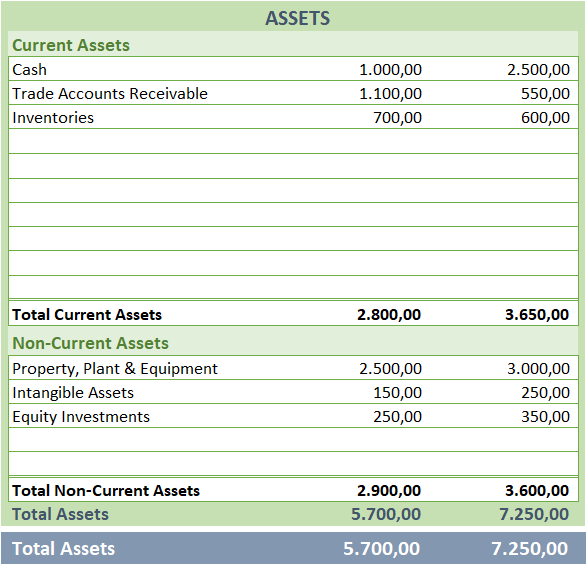QuickBooks Online offers more features on the go and is a better overall value than QuickBooks Desktop. If you don’t need the advanced features offered by the Desktop plan, the Online version will save you money. QuickBooks Desktop is a good choice if you need specialized features such as inventory tracking or forecasting, and you don’t mind paying more for them. The most notable difference, aside from price, between QuickBooks Online and QuickBooks Desktop is the Online version is cloud-based. The mobile app for Online is robust, and Desktop’s mobile app is so limited, that it essentially functions as a receipt uploader.
- You’ll then need to import your files to QuickBooks Desktop through the File menu.
- We’ll compare QuickBooks Online vs. Desktop and highlight the differences between each version, plus which one is most suitable for collaborating on the go, and which is faster and offers more advanced features.
- Both QuickBooks Online and QuickBooks Desktop are on our list of the best small business accounting software, but QuickBooks Online has the advantage of being more accessible and easier to use.
- The most notable difference, aside from price, between QuickBooks Online and QuickBooks Desktop is the Online version is cloud-based.
Both applications also include an easy setup process, so you can be up and running in little time. When signing up for QuickBooks Online, it only gives options for paying monthly. However, once you’ve signed up, navigate to your account settings, and you can switch to annual billing to save 10%. All Online plans include receipt capture, QuickBooks support and more than 650 app integrations with apps such as PayPal, Square and Shopify. QuickBooks Desktop has a more dated user interface than some cloud-based products and requires prior accounting knowledge to get the most out of the product.
Majestic Painting Company, Inc.: Mastering the Art of Flexibility
Some users like the comfort of desktop apps, but they don’t have as many options as cloud-based apps. QuickBooks Online is designed to be easy to use, mobile, and collaborative. This makes it great for businesses with remote teams or people who are always on the go. QuickBooks Enterprise is intended for use by larger-small businesses and can be used by manufacturing and distribution businesses with its advanced inventory features.
Conversely, QuickBooks Desktop offers high-level customization, suiting small to large businesses with more complex demands. Factors such as mobility, teamwork, and customization should be evaluated when deciding which version best aligns with your business. In summary, specific business requirements should dictate the selection between QuickBooks Online and QuickBooks Desktop. By comprehending the distinct attributes of each version, accounting professionals can offer insightful advice to their clients, optimizing their accounting practices and overall business performance.

Merchant Maverick’s ratings are not influenced by affiliate partnerships. These versions give business owners more features and reports geared toward their industry. You can learn more in our guide to the industry-specific editions of QuickBooks Enterprise. QuickBooks Online offers over 80 reports depending on your plan, whereas QuickBooks Desktop Pro has over 130 reports. QuickBooks Desktop Premier and Quickbooks Desktop Enterprise have even more reports (especially if you opt for the industry-specific versions of these programs).
When you might choose QuickBooks Desktop instead
Users can access features via the vertical menu to the left of the screen or by using the drop-down menu bar at the top, and the My Shortcuts option allows you to add a shortcut to frequently used features. If the default screen is too crowded for your taste, you can hide the vertical menu, only displaying it when you wish. QuickBooks Desktop features are better developed than comparable features found on QuickBooks Online. During the setup process, you can choose the features and functions that you will likely be using in QuickBooks Online.
- The application also offers a mobile app that works with both iOS and Android devices.
- In the meantime, if you’re currently using QuickBooks Desktop, it’s worth considering transitioning to the online version as soon as possible.
- All transactions in QuickBooks Online can be initiated by clicking the + New button above the left menu bar and selecting from the menu of transactions.
- When it comes to user limits, the major difference between QBDT and QBO is in how access is granted to additional users.
- Upgrade to Plus for $42.50 per month for the first three months, then $85 per month afterward, and you will receive access for up to five users, inventory tracking and the ability to track project profitability.
Learn more about the time tracking capabilities in our full review of QuickBooks Time. Our unbiased reviews and content are supported in part by affiliate partnerships, and we adhere to strict guidelines to preserve editorial integrity. The editorial content on this page is not provided by any of the companies mentioned and has not been reviewed, approved or otherwise endorsed by any of these entities.
Intuit/QuickBooks Launches New QuickBooks Commerce Platform
But based on the tech industry’s growing emphasis on cloud storage over local storage, it’s hard to imagine that downloadable programs like QuickBooks Desktop will still be relevant a decade down the road. How much you’ll pay for each service depends on the service tier you buy. Both QuickBooks Desktop and QuickBooks Online offer multiple service tiers that cater to different business needs, closing entries and post such as the number of employees who need to access the software. Despite their differences, QuickBooks Desktop and QuickBooks Online also have plenty of overlap. Here’s a look at how these two QuickBooks accounting software options stack up. Despite the platform’s ubiquity, however, many business owners remain uncertain about the differences between QuickBooks Desktop and QuickBooks Online.
QuickBooks Online simplifies both the receipt collection and organization process by allowing you to easily capture and upload a photo or document into your QuickBooks file. From there, you can add it to the correct transaction (or create a new transaction) and, voila, no more shoebox. Once the initial setup has been completed, you’re wholly responsible for handling your books. However, if you still need help or simply want to outsource your bookkeeping to an expert, you can also find a bookkeeping professional in the ProAdvisor directory. Intuit often offers discounts and incentives for purchasing it for set blocks of time, though for the purposes of this article, I’m only covering its full regular price. Hosting your QBDT file on the cloud is available for all editions of QuickBooks Desktop and is available through a variety of providers.
It offers more integrations, as well as a much smoother integration process that allows you to access third party apps directly within QuickBooks Online without the need to sync applications or import data. QuickBooks Desktop also offers easy integration with QuickBooks Payments so you can accept online payments from customers. But aside from cloud access, there are other differences between the two applications that we’ll talk about next. The differences between QuickBooks Online and QuickBooks Desktop are shown in the table. QuickBooks Online is accessible through the cloud and gets changes automatically, while QuickBooks Desktop is a powerful program with advanced features.
A Quick Look at QuickBooks Desktop
This person can customize your QBO for your preferences and needs, set up your chart of accounts, connect QBO to your bank account(s), and put automated processes into place for your most frequently-used tasks. In contrast to Pro and Premier, at the time of writing the software-only version of QBDT Enterprise is an annual purchase of $1,213 for its Silver, or most basic, level of functionality. Thanks to the cloud, you can also access QBO from the convenience of your smartphone or tablet.
QuickBooks Online vs Desktop at a Glance
The hours of our office employees, rent, electricity for the building and anything like that? Well, QuickBooks is now working on an extension to job costing, which will ultimately make job costing in QBO much more robust than it is in Desktop. QBD has evolved substantially over time and now includes solutions for specific types of businesses.
Editorial content from The Ascent is separate from The Motley Fool editorial content and is created by a different analyst team. QuickBooks Desktop wins this, offering more reporting options as well as industry-specific reports and forecasting options not offered in QuickBooks Online. Depending on your business, the ability to integrate with other applications may be convenient, while for others, it can be a necessity. QuickBooks Online offers a variety of pricing plans, which range from $12 to $75 for the first three months. QuickBooks Online and QuickBooks Desktop have very different pricing structures, with QuickBooks Online available by a monthly subscription, while QuickBooks Desktop has an annual cost.
Cloud-based software wins
QBO was designed to be user-friendly to the end user not to the accountant. The screens an accountant is used to seeing are still there but hidden and not as easy to find. This means it’s “harder” to use because QBO is honestly more complicated than QuickBooks Desktop. To make it even easier for you to determine whether QuickBooks Desktop or QuickBooks Online is a more suitable solution for your home-service business, here’s a breakdown of which features they each offer. If you want to be able to create and access your finances from anywhere, QBO gives users that option. But if your team has no experience with accounting systems, QB Online is a better choice.
If you prefer QuickBooks Desktop, read our comparison of QuickBooks Desktop products to help you pick the right solution. No, QuickBooks Online is a completely independent version of QuickBooks, so you will be able access QuickBooks entirely online from your browser or mobile device subscription at no additional cost. Reporting options are good in both applications, though only one of the applications offers industry-specific reporting options.
So, ZipBooks offers you access for multiple users, including login credentials for accountants or other professionals who might need access to your account. You can have up to 5 users registered to your QuickBooks Online account, for free. This could include access for an accountant or other professional to be able to view your files. QuickBooks Online is probably the better option if you need easy-to-use, remote-access accounting software that can be used from anywhere. However, if you need more features and customization options, currently, QuickBooks Desktop has the lead.
